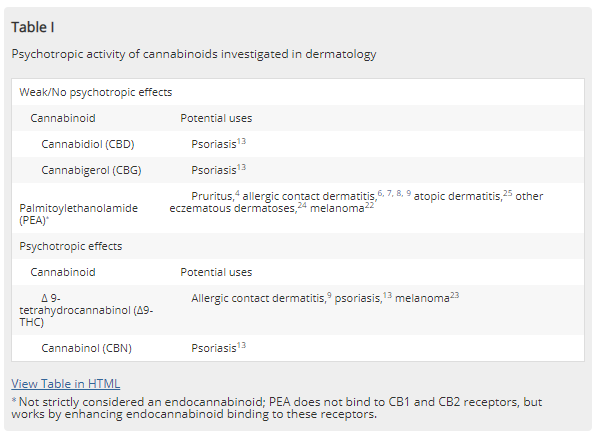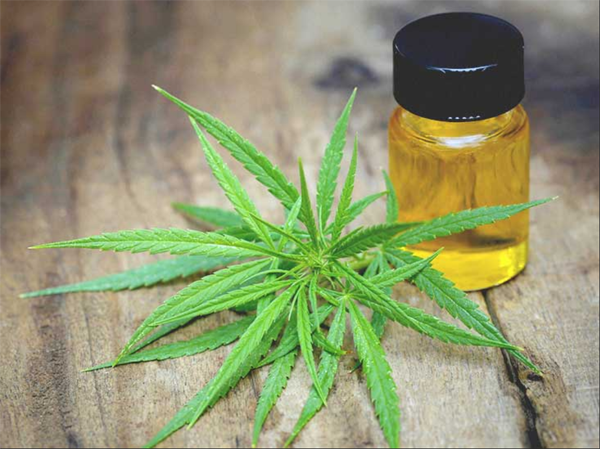CBD Oil and Skin
To be honest, I had little knowledge of CBD Oil until I started seeing signs around town of people selling it. Still, I paid little attention to the fad until it came up at the American Academy of Dermatology meeting a few weeks ago. I guess it’s time I do some research and educate myself.
Photo courtesy of healthline.com
What is CBD Oil?
Cannabidiol Oil (CBD) is extracted from the flowers of the hemp plant which differs from hemp seed oil that is derived from the seed. However, most CBD oil is delivered in a hemp seed oil base.
The cannabis plant contains many different physiologically active compounds including tetrahydrocannabinol (THC) and Cannabidiol (CBD). These compounds are called Cannabinoids. Cannabinoids can be obtained exogenously, but also are made endogenously within the body. Cannabinoids interact with receptors in the body as part of what is now being called the “endocannabinoid system.” There are two known types of Cannabinoid receptors. The CB1 receptor is found in the brain, lungs, liver, and kidneys. The CB2 receptors are mainly in the immune system and blood cells. CBD oil may also work physiologically independent of these receptors, so there is still work to do in determining its exact mechanism of action.
True CBD oil does not contain the mood altering THC compound that is contained in marijuana. To be considered hemp, a plant needs to have less than 0.3% dry unit of mood-altering THC oil. Scientists now believe there are lots of Cannabinoid receptors throughout the body. CBD oil can be used to positively affect those cannabinoid receptors without the psychoactive compounds found in marijuana.
How does one use or take it?
It usually is taken orally or used topically. However, there are no accepted doses. No studies have been done to determine optimal dosing. Plus, quality and concentration can vary greatly depending on the manufacturer. There are also a number of skin care products with CBD Oil incorporated. Again, there is a lack of truly scientific studies to determine optimal dosing and effects.
What all can it be used for?
There are tons of claims of CBD Oil affecting the following: chronic pain, epilepsy, anxiety and depression, drug-resistant bacteria, inflammation, environmental stress, schizophrenia, weight, heart disease, skin conditions, cancer and much more!
What is the effect on the skin?
There are claims that it improves eczema and psoriasis through anti-inflammatory activity. It improves acne by regulating oil production and decreasing inflammation in the skin. There is data suggesting that it has anti-aging benefits through anti-oxidant effects. When reviewing an article from the “scientific” giant Allure magazine, their top products with CBD oil vary a lot, and most of those products contain active ingredients that have more well known and proven beneficial side effects.
The table below shows where cannabinoids are being investigated in dermatology.
 from the Journal of the American Academy of Dermatology
from the Journal of the American Academy of Dermatology
Is it legal?
Because it does not contain THC or have mood-altering effects, it is often legal. However, each state has different rules regarding CBD Oil. In West Virginia, CBD is legal as long as it contains less than 0.3% THC compound and is derived from the hemp plant.
Should I add CBD to my skin care regimen or treatment?
At this point, there is not enough scientific evidence that CBD oil works for the skin. Most scientific studies that are available are small, laboratory only studies. More work is needed before Dr. Rosenberger recommends CBD as an essential ingredient to a skin care regimen.
______________________________________________________________________
If you know someone who may find this article helpful, please share it with them! Follow us on social media this week for more resources, and general skin health.
If you would like to receive these posts in your email inbox, Subscribe to our Site!
